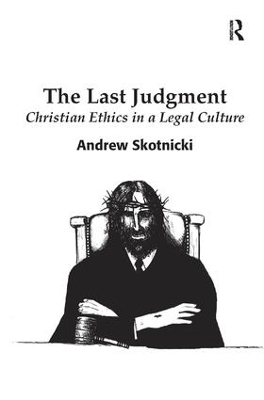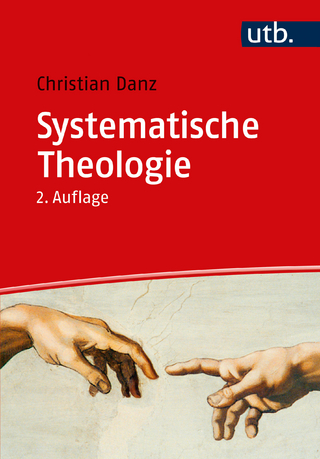
The Last Judgment
Christian Ethics in a Legal Culture
Seiten
2012
Routledge (Verlag)
978-1-4094-3574-7 (ISBN)
Routledge (Verlag)
978-1-4094-3574-7 (ISBN)
Traces Christian history to show that Christians of an earlier age took very seriously the gospel injunctions against punitive legal judgment and how the advent of formal legal codes and philosophical dualism undermined that perspective to create a division between a private Christian spirituality and legally sanctioned violence.
In a culture obsessed with law, judgment, and violence, this book challenges Christians to remember that Jesus urged his followers to judge no one, bring harm upon no one, and follow no law save the law of altruistic love. It traces Christian history first to show that Christians of an earlier age took very seriously the gospel injunctions against punitive legal judgment and then how the advent of formal legal codes and philosophical dualism undermined that perspective to create a division between a private Christian spirituality and a public morality of order and legally sanctioned violence. This historical approach is accompanied by an argument that the recovery of a Christian ethic based upon unconditional love and forgiveness cannot be accomplished without the renewal of a Christian spirituality that mirrors the contemplative spirituality of Jesus.
In a culture obsessed with law, judgment, and violence, this book challenges Christians to remember that Jesus urged his followers to judge no one, bring harm upon no one, and follow no law save the law of altruistic love. It traces Christian history first to show that Christians of an earlier age took very seriously the gospel injunctions against punitive legal judgment and then how the advent of formal legal codes and philosophical dualism undermined that perspective to create a division between a private Christian spirituality and a public morality of order and legally sanctioned violence. This historical approach is accompanied by an argument that the recovery of a Christian ethic based upon unconditional love and forgiveness cannot be accomplished without the renewal of a Christian spirituality that mirrors the contemplative spirituality of Jesus.
Andrew Skotnicki teaches Christian Ethics at Manhattan College in New York City. He is the author of Religion and the Development of the American Penal System, Criminal Justice and the Catholic Church and numerous articles on the theological and ethical dimensions of criminal justice.
Contents: Prologue; Introduction: crime, harm, and the cultural landscape; Law and judgment in the Hebrew scriptures; Law and judgment in the New Testament; Law and judgment in the early Christian community; Law and judgment prior to the Enlightenment; Twilight of the Gods: rights, reason, and disenchantment; Law and judgment in modern society; Bibliography; Index.
| Verlagsort | London |
|---|---|
| Sprache | englisch |
| Maße | 156 x 234 mm |
| Gewicht | 521 g |
| Themenwelt | Geisteswissenschaften ► Geschichte |
| Religion / Theologie ► Christentum ► Kirchengeschichte | |
| Recht / Steuern ► Allgemeines / Lexika | |
| Recht / Steuern ► EU / Internationales Recht | |
| ISBN-10 | 1-4094-3574-1 / 1409435741 |
| ISBN-13 | 978-1-4094-3574-7 / 9781409435747 |
| Zustand | Neuware |
| Haben Sie eine Frage zum Produkt? |
Mehr entdecken
aus dem Bereich
aus dem Bereich
eine Geschichte der christlichen Kunst
Buch | Hardcover (2024)
C.H.Beck (Verlag)
32,00 €


